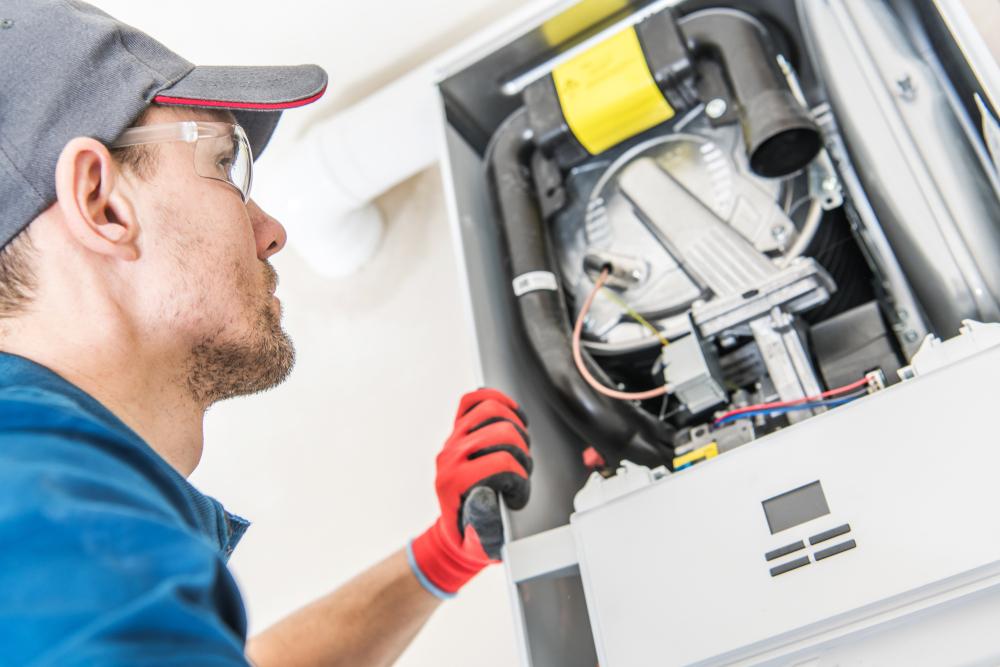In today's fast-paced world, we rely heavily on our household appliances to get through daily routines efficiently. Among these, the microwave stands out as one of the most used and essential devices in modern kitchens. Whether it's reheating last night's dinner, popping a bag of popcorn, or quickly defrosting frozen ingredients, the microwave is a time-saving marvel.
But like any other appliance, microwaves are not immune to problems. One of the most common complaints homeowners face is uneven or no heating. When this happens, the disruption can be more than a minor inconvenience—it can throw off your entire meal preparation and daily flow.
If you've ever found yourself frantically searching for "microwave appliance repair near me", you’re not alone. The good news? Local experts are just around the corner and ready to help you diagnose and fix the issue quickly, efficiently, and affordably.
Common Microwave Heating Problems
Microwave heating issues can stem from a variety of causes, ranging from simple user errors to more complex internal malfunctions. Here are some of the most common culprits:
1. Magnetron Failure
The magnetron is the core component that generates microwave energy to heat food. If it burns out, your microwave won’t heat, even if the rest of the appliance appears to function normally. Unfortunately, a faulty magnetron often requires professional replacement, as it’s not an easy DIY fix.
2. Door Switch Problems
Microwaves come equipped with safety interlock switches that prevent the unit from operating with the door open. If one or more of these switches malfunctions, the microwave might not turn on at all or may run without heating.
3. Blown Diode
The high-voltage diode converts AC to DC and works with the capacitor to power the magnetron. When this part fails, your microwave might hum or light up but won’t heat your food.
4. Faulty Capacitor
A high-voltage capacitor stores electricity and works with the diode and magnetron to generate microwave energy. If this component is damaged, it can cause your microwave to stop heating entirely.
5. Control Board Issues
Sometimes the control panel or circuit board can malfunction due to age or electrical surges, leading to random shutdowns or non-responsive buttons, which can affect how the unit heats.
Understanding these potential issues can help you better describe the symptoms to a repair technician, which could save you time and money during diagnosis and repair.
Best Appliance Repair Toronto
When it comes to finding reliable help, the phrase best appliance repair toronto becomes more than just a search term—it’s a necessity. Living in a bustling city means you have access to some of the most skilled and professional appliance technicians in the region. But how do you separate the best from the rest?
What to Look for in a Reputable Repair Service
Here are a few key qualities that indicate you're working with top-tier repair professionals:
1. Certified and Experienced Technicians
Check whether the technicians are certified by relevant authorities or appliance manufacturers. Experience also plays a critical role—technicians who have worked on a wide range of models are more likely to quickly diagnose and resolve issues.
2. Transparent Pricing
A trustworthy company will provide a clear breakdown of costs before beginning any work. Beware of services that offer suspiciously low quotes upfront only to surprise you with hidden fees later.
3. Warranty on Repairs
A confident repair service will back its work with a warranty. This not only gives you peace of mind but also shows that the company stands by its workmanship.
4. Fast Response Time
In a city like Toronto, time is of the essence. The best services offer same-day or next-day appointments so you're not left without a functioning microwave for long.
5. Customer Reviews
Always read customer reviews and testimonials. Real experiences can provide insights into punctuality, professionalism, and the overall quality of service.
Tips to Prevent Heating Issues in the Future
While it’s comforting to know local experts are available when needed, preventing issues before they arise is always preferable. Here are some quick maintenance tips:
- Clean Regularly: Built-up food particles and grease can interfere with the internal components. Regular cleaning can go a long way in preventing malfunctions.
- Use Microwave-Safe Containers: Using the wrong materials can cause sparks or fires, damaging internal parts.
- Avoid Slamming the Door: Repeated forceful closures can damage the latch or door switches.
- Don’t Run Empty: Operating the microwave with nothing inside can cause the magnetron to overheat, leading to failure.
By practicing good habits, you can extend the life of your microwave and minimize the need for repairs.
When to Replace Instead of Repair
Not every microwave is worth fixing. If your unit is more than 8-10 years old or has already undergone several repairs, replacement might be the smarter option. Here are a few signs it’s time to invest in a new appliance:
- Persistent electrical issues
- Significant rust or damage inside the cavity
- Outdated technology or lack of modern safety features
- Repair costs exceeding 50% of the replacement cost
Consult with a technician to weigh the pros and cons of repair versus replacement based on your specific situation.
Conclusion
Microwave heating problems are more than just annoying—they can disrupt your entire day. But you don’t have to struggle with the inconvenience alone. Whether you're hunting down a solution to an urgent issue or exploring the best appliance repair in Toronto has to offer, help is readily available.
By recognizing the signs of common microwave malfunctions, understanding what makes a repair service truly great, and taking preventive maintenance seriously, you can keep your appliance running smoothly for years to come. When in doubt, always rely on trained professionals to assess the issue—after all, your safety and convenience are worth it.
Local experts are standing by to restore your appliance—and your daily routine—back to full function. Don’t wait for the problem to get worse. Get the help you need, exactly when you need it.
